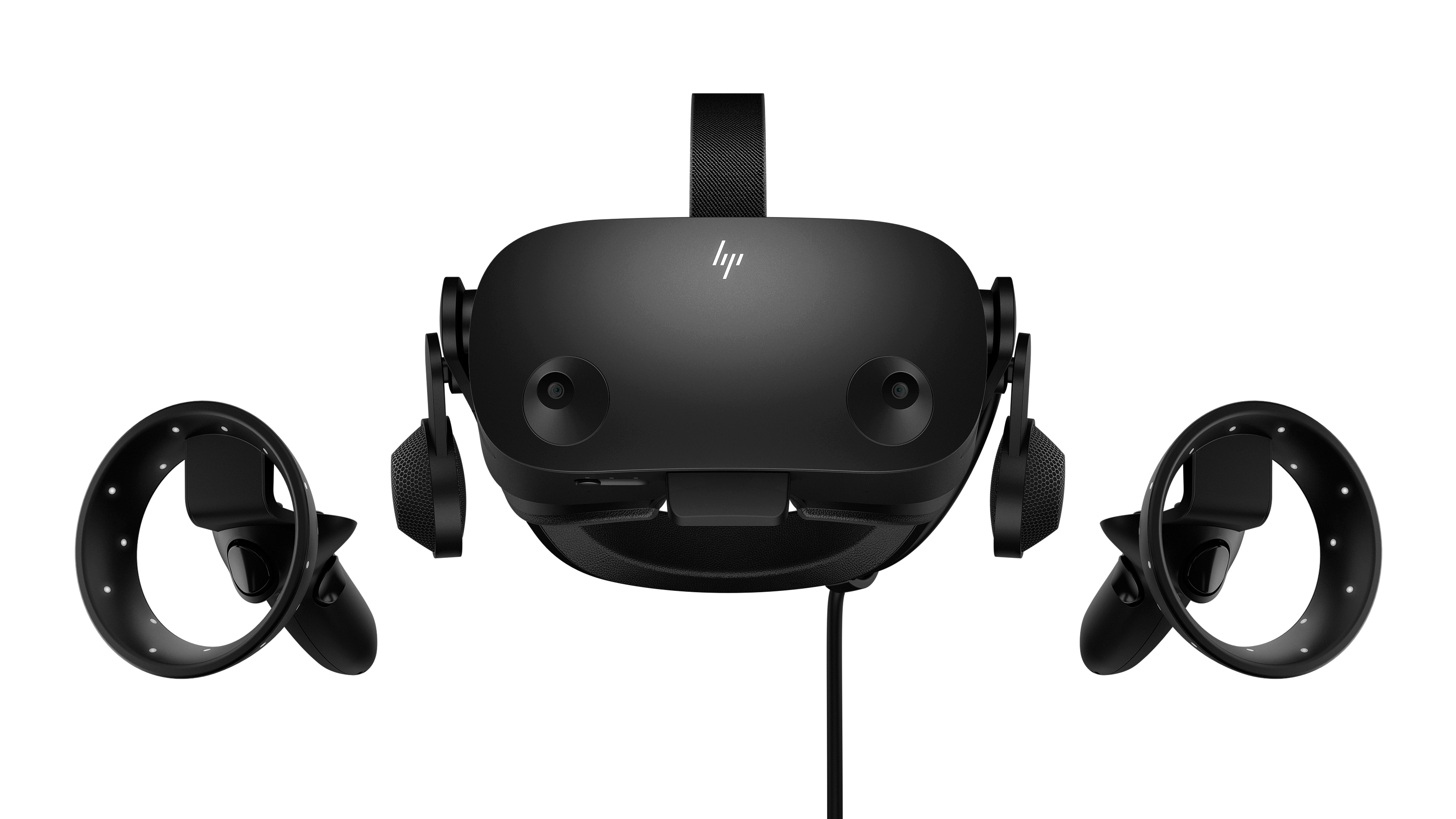This new VR headset packs tracks your heart rate and pupil dilation

Sign up for breaking news, reviews, opinion, top tech deals, and more.
You are now subscribed
Your newsletter sign-up was successful
While the Valve Index has been one of the hottest VR headsets since its launch close to two years ago, HP has since put out a viable VR/MR headset of its own in the form of the HP Reverb G2 that launched at the end of last year.
This year, however, HP is adding a few more features to its Windows Mixed Reality headset including eye and pupil dilation detection, plus a heart rate monitor and a face camera. HP claims these bio-trackers will allow developers to collect reaction data that can be used for adaptive XR experiences.
The improved headset is called the HP Reverb G2 Omnicept Edition and it will be available starting in May for $1,249 (around £900, AU$1,650).
That’s a fair chunk of change, but in HP’s defense, you’ll still be able to buy the regular HP Reverb G2 at half the price ($599 / £520 / around AU$800).
While all the sensors are new, the Omnicept will have the same specs as the Reverb G2 – there’s a 2160 x 2160 per eye resolution, four cameras for inside-out tracking, a 90Hz refresh rate and a 114-degree field of view. That resolution is a bit higher than the Valve Index’s 1440 x 1600 RGB LCDs, but the Valve Index still has a higher refresh rate (120Hz) and larger field of view (130 degrees).
The Valve Index is also $999 / £919 (about AU$1,425) – at least it is when you can find it in stock – making it a few hundred more than the regular Reverb G2 and a bit less than the Reverb G2 Omnicept Edition.
A big step for VR researchers and VR-based businesses
So who’s the HP Reverb G2 Omnicept for? Well, because of its higher price and data-centric feature set, HP is marketing the new Reverb more as an enterprise VR headset for businesses and researchers than toward gamers.
Sign up for breaking news, reviews, opinion, top tech deals, and more.
To that end, the Reverb G2 Omnipcept will come with a special software suite that can harness data from all those sensors and can create specialized apps – which is something the vast majority of gamers probably won’t need access to.
According to HP, that software can be used to “measure a user's cognitive load - giving businesses a better understanding of the trainee’s performance and ability to make decisions” and “provide experiences that help reduce stress, improve comfort and assist breakthroughs”.
Long story short? Unless you’re a researcher – or someone really into creating the next VR workout sensation – you should probably stick to the lower-cost HP Reverb G2 or Valve Index.
- Looking for a more in-depth comparison? Check out our guide to the best VR headsets

Nick Pino is Managing Editor, TV and AV for TechRadar's sister site, Tom's Guide. Previously, he was the Senior Editor of Home Entertainment at TechRadar, covering TVs, headphones, speakers, video games, VR and streaming devices. He's also written for GamesRadar+, Official Xbox Magazine, PC Gamer and other outlets over the last decade, and he has a degree in computer science he's not using if anyone wants it.